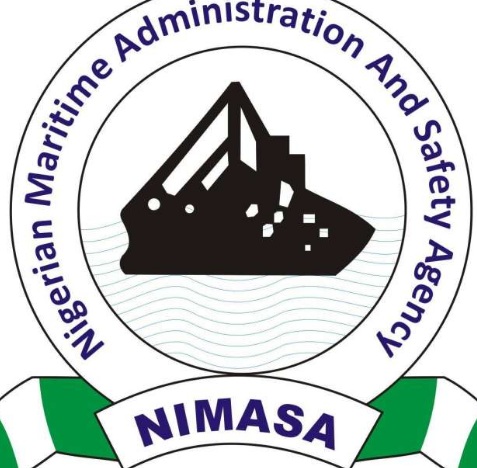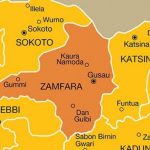Maritime: Task ahead for Amaechi, Saraki to drive sector

Philip Clement
Following the return of Rotimi Ameachi as the minister of transportation for a second term and the appointment of Gbemisola Saraki as minister for state, industry players, stakeholders and Nigerians have set their expectations on their performance.
Although, there were some key reforms by the present administration which included the introduction of ease of doing business in the sector, rehabilitation of Wharf Road, among others, which has been a nightmare to port users over the years and procured speed patrol boats for the navy to combat oil thefts and other maritime crimes.
Also, the transport sector through the stewardship of Rotimi Amaechi as minister also purchased tug boats for the Nigerian Ports Authority (NPA), and is constructing a rail line from Lagos to Ibadan for evacuation of cargoes from the ports.
Other key reforms undertaken towards repositioning and making the maritime sector more proactive include the dredging of the Escravos channel in the Niger-Delta, restructuring of the Maritime Academy of Nigeria (MAN), Oron, and ban on importation of rice to promote food self-sufficiency and also improve local and domestic protection as well as consumption.
Challenges
The maritime sector just like any other sector of the Nigerian economy face challenges, some of which include:
Inefficient port and shipping infrastructure
The sorry state of port infrastructure is a huge challenge facing the Nigerian maritime sector,
Ports, terminals, cargo handling equipment, channels and harbours, warehouses, ports access roads, intermodal transport involving rail and roads interfacing with ships and badges, utilities, information communication technology (ICT), deep seaport and scanners.
To worsen it, the present bad condition of port access roads, especially to the Lagos Port Complex, Apapa and Tin Can Island Port, is disturbing.
Maritime infrastructure deficit
The under-development of seaports as well as the inefficient supportive logistics infrastructure is another torn in the flesh of the maritime industry in Nigeria.
The need to increase vessel size present challenges, both for ports and shipping companies, as well as accommodate greater numbers of larger vessels does create challenges for ports where the capacity to accept such ships is obviously unavailable.
Revenue loss
It has been estimated that Nigeria is currently losing N15b or $101m annually which by all estimation is injurious to the sector especially at a time when Nigeria is looking for different ways to diversify it’s revenue base.
Perennial sharp practices
Another identified problem which the maritime sector is faced with is operational inefficiencies, sharp practices and lack of transparency in day-to-day engagements and activities.
Also, unnecessary delays for ports shipment seem to be the norm and prompt delivery of shipment the exception. Thus, the absence of collaboration by stakeholders (regulators and operators alike and non-alike) to combat these ills through global best practices, innovative technologies and ingenious ways still remain to be seen.
Way forward: Increased investment in port infrastructure
Due to the complex nature of the industry, there is a need for increased and sustained investments in port infrastructure. There must be a deliberate effort on upgrade and modernization of facilities for quick discharge of consignments.
The improved investments should be on facilities that support and enhance the maritime transport sector, making it efficient, productive, safe and environmentally friendly, with a view to making the sector achieve its fundamental objectives.
Increased financing
Given how capitally intensive the maritime sector is, there is need for increased financing by the private sector. Intervention funds, through the Central Bank of Nigeria and disbursement of the Cabotage Vessels Financing Fund can be made accessible to concerned industry players
Away from the challenges bedevilling the maritime sector, the sector also abounds with prospects which if properly harnessed will be a key player in revenue generation.
Increased maritime infrastructure
There is need for development of critical maritime infrastructure. Taking concrete steps in development of railway system, airport and seaport structures or facilities, construction and repair of road network and their interconnectivity will go a long way in improving intermodal transport in Nigeria.
The state of infrastructure (modes of transportation include) in the maritime industry calls for more involvement by the private sector.
Public Private Partnership can be explored to provide funds for maritime infrastructure that can turn around the fortune of the nation’s maritime industry.
Efficiency, transparency, global best practices
There is need for improved efficiency in maritime operations in Nigeria to improve global competitiveness. Improved predictability and transparency in maritime operations will go a long way in boosting confidence in the sector, which in turn will bring about increased revenue.
Collaboration must be sought through Public Private Partnership (PPP) in implementing strategies and adopting global best practices, innovative technologies and ingenious methods in resolving the ills that currently plague the maritime industry.
With a view to increasing revenue in Nigeria’s shipping sector, unnecessary delays in maritime operations can be drastically reduced through use of sophisticated or innovative technologies funded by the private sector.
Marine tourism
Tourism demand is increasing worldwide, and there are opportunities for investors to exploit Nigeria‘s coastal and maritime resorts for revenue generation and job creation.
These opportunities include the creation of a marine mall, cruise ships and the fostering of marine sports. Driving the growth of marine tourism through increased investment can be a huge area of opportunity for private investors.
Increased agitation for disbursement of Cabotage Vessel Finance Fund
There is need for private sector participants in the maritime industry to put pressure on the government to disburse the Cabotage Vessel Finance Fund (CVFF) provided for in the Cabotage Act.
The disbursement of the CVFF is long overdue. Disbursement of the CVFF will definitely go a long way in providing succor to ship owners who have acquired huge debt over the years and at the brink of insolvency (occasioned by poor ship finance).
Capacity building
Maritime training institutions in the country will largely benefit from improved and modern simulators and equipment of professionals and employees engaged in the maritime industry. This will go a long in not only providing the human capital needed for the efficient running of the maritime industry but also provide opportunity.
PPP will come in readily in this instance in providing the means for building the capacity of maritime professionals needed to take the country’s maritime industry to the desired height.
In taking the maritime industry in Nigeria to enviable heights, Nigeria can emulate China which is currently being ranked as the 2018 world’s leading maritime nation due to its top four ranking in all of the maritime pillars (shipping, finance and law, maritime technology and ports & logistics).
China was able to achieve this feat because of her vibrant ports, logistics and shipping pillars, with the current record of world’s largest container and bulk ports.
Similarly, lessons can be drawn from the Philippines which has achieved the reputation of a global supplier of sea farers, creating millions of jobs for her citizen and boosting foreign exchange earnings. The time is now to not grow indigenous ship ownership, but also increase funding crucial to boosting the sector.
Also, following the launch of the 2018 Nigerian Maritime Forecast in 2018, its implementation will lead to more stakeholder engagement, review of fiscal and trade policies stopping Nigerians from participating in maritime activities, accelerate funding capital for assets acquisition and enforcing utilization of Nigerian owned marine vessels










